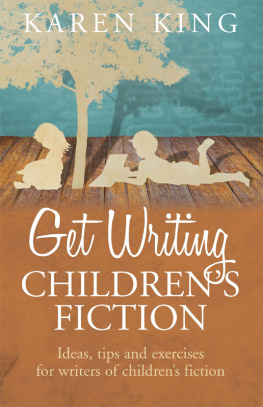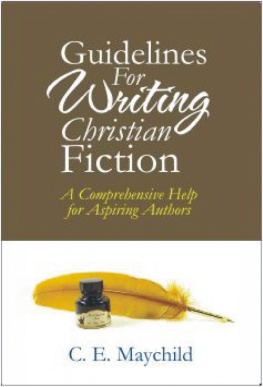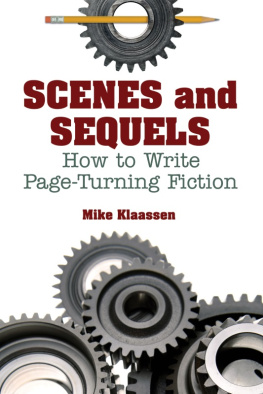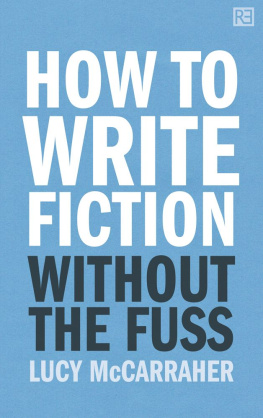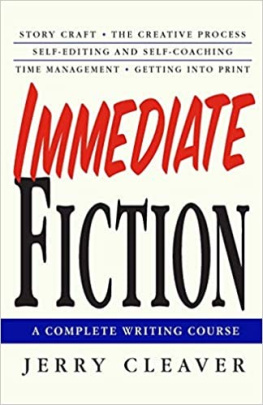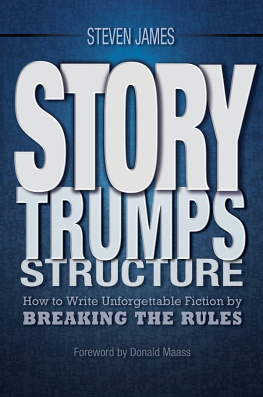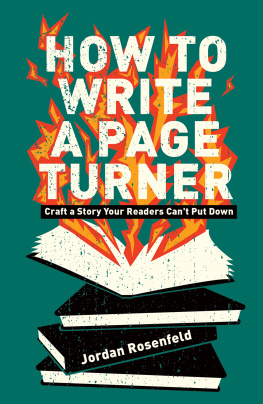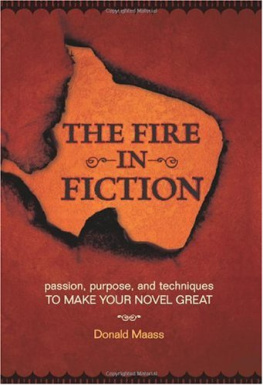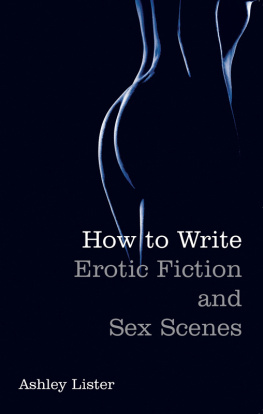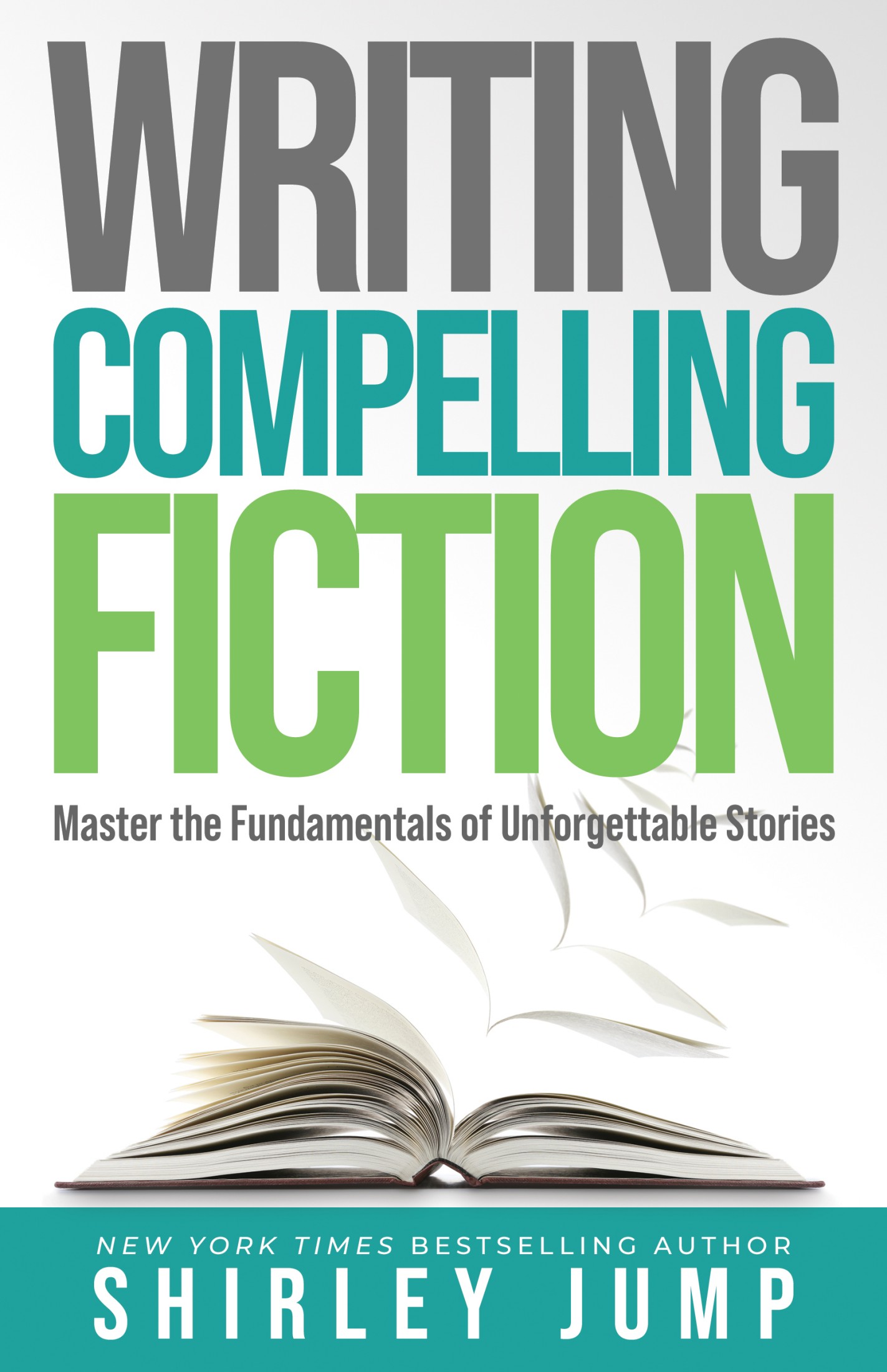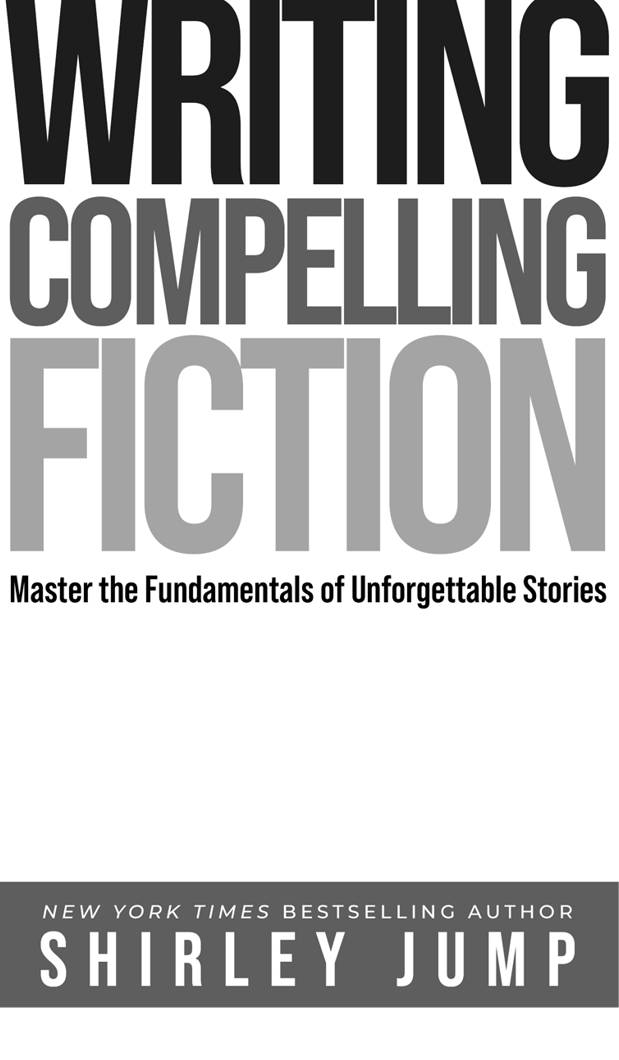Raving fans
Brilliant, educationalone of the best how-to books I have read. Every author would benefit from having this in their writers toolbox. Not only does she illustrate how to, but she does an excellent job of spelling out the pitfalls and things many authors do that perhaps shouldnt be done. From character development to plot, Ms. Jump explores every aspect of writing a story from beginning to end. Its an entire weekend conference in one book.
Catherine Bybee, New York Times bestselling author
"Jam-packed with tools, tricks, and field-tested strategies, Shirley's Jump's direct, delightful book lives in the nitty-gritty between expedience and experience. It's a charming, chatty writing guide that rewards rumination and revisits to help anyone craft compelling fiction.
Damon Suede, award-winning author
"Clear and insightful, Writing Compelling Fiction is a gem of a book for both the novice and the veteran writer. Shirley's experience as a teacher and presenter shines through...it's an invaluable resource."
Donna Alward, New York Times bestselling author
No one knows the craft of writing better than Shirley Jump. Whether youre writing your first novel or are an experienced author, Writing Compelling Fiction is a must-have addition to your writing library.
Barbara Wallace, Amazon bestselling author.
A great guide to writing fiction, whether you're a beginner or a published author. Shirley's practical lessons break complex ideas into actionable steps, and the homework at the end of each chapter show you how to apply them to your work. Highly recommend.
Laura Drake, award-winning author
Writing Compelling Fiction
Master the Fundamentals of Unforgettable Stories
By Shirley Jump
Part of The Authority Series
Copyright 2021 Shirley Jump. All rights reserved. Except for brief quotations for review purposes, no part of this book may be reproduced in any form without prior written permission from the author.
Table of Contents
Introduction
It doesnt take a rocket scientist to figure out that you probably picked up this book because you want to be a better writer. Heck, I wrote this book to help you be a better writer and answer all the questions that people ask when I teach online or speak at a conference. And, to be honest, I wrote it to remind myself of what goes into writing a truly compelling book, because the truth is, theres a lot to remember when it comes to getting from once upon a time to the end .
But if you want to write a book that matters, a book that makes a difference, a book that you are so stinking proud of writing that you practically bust a gut talking about it, then this is the one you want to read, because Im going to tell you exactly how to do that. This book is the compilation of decades of hard-knocks learning, great editors, and studying my craft. I put it all in one place so that you dont have to be a slow learner like I was.
Ive always been a writer, and frankly, have no other life skills (so if you bought this book, thank you for funding the only career I am capable of having). However, the road to becoming a fiction writer was long and bumpy, and nearly didnt happen for me.
I started out as a journalist when I was eleven (by lying about my age and getting a job at a newspaper). I moved on to copywriting, magazine articles, and public relations. Deep down inside, however, I always wanted to write novels. I took a class in writing a romance novel at my local community education center and figured I knew everything I needed to know. After all, I had a degree in English and years of experience writing. Transitioning to fiction should be a piece of cake, right?
Wrong. It was incredibly difficult.
But I was doggedly determined, or maybe too dumb to know when to stop trying. I kept writing, kept submitting, crying over rejection letters, and most of all, believing. When I was trying to get published back in the days of cavemen and the invention of fire, there was no such thing as self-publishing. The only route to becoming a fiction author was selling to one of the New York publishing houses.
I wrote ten books in eight years, and every last one of them was rejected by editors in New York and England (because why stop at one country for rejections when you can have two?). I thought I had a sale on the table in the spring of 2001, but at the last second, it fell through. Then I had a book that had already been rejected by Harlequin that then went on to win my local writers group contest, and as a first-place winner, I got a request for the full manuscript by a senior editor in a different department at Harlequin.
At Harlequin, resubmitting a book theyve already said no to is the kiss of death. They keep notes on what theyve already seen, and they know if you try to circumvent the system, so I had to be honest if I sent it back to Harlequin. My agent at the time refused to represent the book because she thought it would make her look bad, so I sent it in myself in May of 2001.
Then I got another rejection letter for a different book, and my then-agent told me that I clearly didnt have what it took to write fiction, and maybe I should just quit. I was devastated.
If my own agent didnt believe I could do it, and clearly none of the publishers Id sent my books to thought I was good enough to be published, then surely I wasnt. At that time, I had my second non-fiction book coming out (which went on to hit The Wall Street Journal bestseller list) and I had more than two thousand articles published in national publications, but none of it mattered anymore. My dream, ever since I was old enough to read, had been to write fiction.
My spouse at the time was not the most supportive person. I had to fight for my time to write, getting up at 4:30 a.m. for years, fitting my fiction around kid duty and working full-time. He didnt see the point in me going to writers group meetings, because I clearly wasnt going to sell anything. I was making really good money copywriting for ad agencies, but hated that work so much, I could sympathize with a wolf who chews off his own leg to escape a trap.
When my agent rejected me, it was the last straw. The only person who was saying you can do this had finally said no, you cant. You suck. Okay, those werent her exact words, but the meaning was the same. In desperation, I called Harlequin to check on the status of my submission, hoping theyd say they were too busy drawing up my contract to get back to me.
Instead, they said they had lost my manuscript in the myriad of submissions they received. I took it all as a sign that my agent was right, and I wasnt meant to write fiction.
That day, June 23, 2001, I threw everything out. Took the how-to books off the shelves, tossed the manuscripts, wiped the hard drive clean and threw out the disks. I packaged my entire writing life into three Hefty garbage bags, then sat down in my office and had myself a damned fine pity party.
I had finally given up on myself and my dream.
On that day, my then-husband encouraged me to put everything back, told me Id someday sell a novel, and tried to get me to write again. But I wouldnt. In fact, I couldnt. The spark had disappeared for me and I figured I was fighting a losing battle anyway. I spent a good week feeling really miserable. I binge watched reality TV and didnt write a single word.
Then, the following Saturday, a package arrived in the mail. A big package. Priority mail. Clearly, it was the manuscript Id sent to Harlequin. Since the whole thing had been returned to me, I chalked it up as a rejection and tossed it in the trash unread. My theory (based on hundreds of rejections) was that they always send you a letter to reject you; they call if they want to buy.


